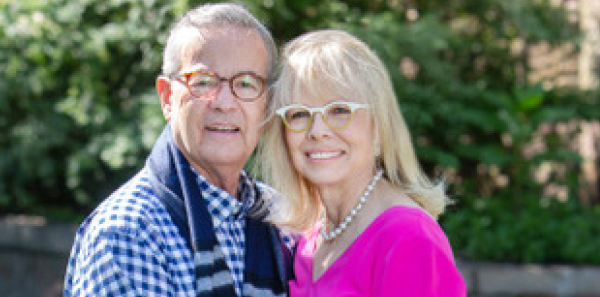
Emergency physicians see people at some of their worst moments—traumatic injury, grave illness, the death of a loved one—and provide compassionate care without expectation of recognition or reward. For emergency physician John Geesbreght, MD, MS, FACEP, these principles have been a driving force in his life, guiding his decisions as a medical director, father, mentor, and member of the Fort Worth, Texas, community.
Explore This Issue
ACEP Now: Vol 38 – No 05 – May 2019Dr. Geesbreght was born in south Chicago. The son of immigrant parents, he was inspired to become a physician in elementary school. He went on to practice in the emergency department in Fort Worth, where he served as emergency department medical director of Texas Health Harris Methodist Fort Worth for more than 40 years, providing care to his family and community. As a leader, Dr. Geesbreght searched for innovative solutions to make sure his emergency department would deliver the best patient care possible.
One of those solutions was founding PhysAssist Scribes, Inc., the first scribe company in the United States, in 1995. Initially, the company recruited pre-med students from Texas Christian University and trained them to work alongside emergency physicians to provide scribe services in the ED to improve communication and documentation, free up physicians’ time for patient care, and give students valuable medical experience. Both of Dr. Geesbreght’s sons went on to lead the company. Although neither became a physician, they both were guided by the principles of hard work and compassion they learned from their father and his career.
Dr. Geesbreght’s sons, Andrew and Alex, recently sat down with ACEP Now’s Medical Editor in Chief Kevin Klauer, DO, EJD, FACEP, to discuss their father’s career in emergency medicine and the influence he had on their own careers. Alex served as president of PhysAssist prior to its acquisition by TeamHealth in 2014. Andrew served as president of PhysAssist prior to its acquisition by HealthChannels in 2018 and is currently chief leadership officer at HealthChannels.
KK: Alex and Andrew, let’s discuss your father’s emergency medicine career and how it‘s influenced your life.
Alex G: The highlight for me was getting to work with my dad for 12 years. I was an attorney for a while and then was general counsel for his emergency medicine group.
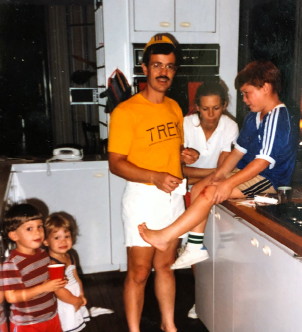
Dr. Geesbreght (center) is suturing Alex’s bicycle injury while his mother, little sister, and brother Andrew watch.
Photos: John Geesbreght
When I was 9 years old, I started working, volunteering, with my dad down at the hospital and I thought, “Oh, my dad’s a doctor, maybe I’ll be a doctor.” I was 16, and I used to spend the night. I think I logged in 750 hours of community service through working at the emergency department. I very quickly realized when I got older that I couldn‘t handle being in that environment, and one of the things that I realized is that my dad never talked about what happened at the [emergency department]. When I started seeing people die, the horrible accidents, heartache, I remember thinking, “How could he not talk about this?”
Although he did shield us from the harm that some of the stories from the ED might do to a little kid, he took those lessons and was able to apply them to our world every day.
He is such a great teacher. He taught us all of these lessons and he had all of this wisdom. He never shared those stories with us, and I don‘t know why, but I kind of wish he had. This also speaks to his stability and his ability to separate family life from work life.
KK: Andrew? Some thoughts from you?
Andrew G: I learned early on as a child that my dad was doing something very important. I say that because I didn’t have to introduce myself. When I said my dad was Dr. Geesbreght, I frankly had intense pride. Any time someone had their worst day, they called my dad and there was a high level of trust in his ability to restore normalcy in families’ lives.
In an industry that didn’t have generally accepted rules at that time, he was helping create new standards. He was all the cliché terms: trailblazer, innovator, etc. We watched him do that, and at 75 years old, watching him at his retirement party, with others talking about him, it really crystallized that for me.
We used to talk about him blowing up at the smallest little things, but then when it was a really big deal, when I was at my worst moment, that’s when I could count on a hug and an encouraging word, and the limited amount of time I saw him in the ED, that‘s how he was with patients. He was reassuring and calm in their worst moment, and I loved that.
Alex G: One of the things he always said was, “There are doctors who work in an ER”—now, this is back when they called it an ER—but he said, “There are doctors who work in an ER and then there are ER doctors. I am an ER doctor.”
KK: How do you think his life as an emergency physician helped shape you as young professionals today?
Andrew G: Dad’s ability to handle stress, his restrained empathy, I learned from Dad to optimize my mental hygiene. Alex and I aren’t clinical, but I can say for sure that I’ve learned from him how to manage stress, to appropriately compartmentalize difficult things in our careers.
Alex G: I would say that Andrew got more of the knowing when to be quiet from my dad than I did. I’m far more transparent to a fault, even with employees, but I would say my leadership style is rooted in his; he’s an inspirational leader.
One of his greatest strengths is that he understands almost intuitively what moves the needle. Back when they were doing the ED redesign, how to make people happy in the ED was all the rage. Many of the experts said, “Well, give them coffee,” and “Give them a blanket when they get triaged,” and “Go back,” and my dad said, “They’re not here to get coffee. They can get coffee at home. They have blankets at home. They’re here to see a doctor.” So, he made certain the very first thing they did was see the doctor. He knew that every moment they waited prior to seeing the doctor was wasted time waiting.
KK: Emergency physicians tend to be selfless and giving. We do not always need recognition for our efforts. Do you have an example of your father’s selflessness?
Andrew G: One thing I learned from my dad that I still carry with me today is all ED doctors have the ability to sort through thousands of different possibilities and deduce a specific solution to whatever the complex problem presents. When Dad used to talk to us about problems, he would look through this complex prism of perspectives and possibilities to help us think through all of those different angles, and that‘s something that I know that Alex and I use all the time. I use it daily and I’ve gotten it directly from him. My dad didn’t require public recognition. It was enough for him in almost all cases to just do the right thing.
Recently, I ran into a guy who I played high school soccer with. I hadn’t seen him in probably 25 years. We ran into each other at an over-30 indoor soccer league. He came up to me, put both of his arms on my shoulders, stopped me, looked me right in the eye, and said, “Andrew, it’s Jaime. Do you remember me?” I said, “Of course,” and we hugged, and he launched right into this story. He said, “I just want you to know that your dad changed my life.” So, I sat my bag down and said, “Well, you‘ve got my full attention, Jaime. Tell me more.” He said, “You probably don’t know this but in middle school we were at a YMCA tournament and your dad came up to me afterwards and said, ‘Hey, you‘re good. Would you like to play on our select team next year?’”
Jaime said he was immediately saddened by this because he knew he couldn’t afford it. His dad wasn’t in his life and his mom worked multiple jobs. He told my dad that he couldn’t afford it, but thank you for the opportunity anyway. So, my dad took his number, and a few days later called him and said, “Jaime, this is Dr. Geesbreght. I don‘t know if you remember me, but we talked at the tournament.” Jaime said, “Yes, I remember you.” Dad said, “I just wanted to let you know that we’re going to take care of your league fees so that you can play on our team.” Jaime was saddened even more and said, “I really appreciate it. I can’t pay for travel. I can’t pay for food. I barely have enough for gear.” Dad paused and said, “Well we‘re going to take care of all of that for you too.”
What was so astounding is for four years, when he was 14 to 18, my dad unceremoniously took care of every single bill, invoice, fee, lunch, travel, and everything else that would have been a cost to him and his family. My dad took care of this and never told a soul. Jaime said, “He did that because he was so generous. He didn’t need the credit, but he also didn’t want to embarrass me.” So he never mentioned it to anybody. He didn‘t tell my mom. He didn‘t tell me.
KK: Very touching story that really exemplifies his selfless service. Thank you both for your time and sharing your thoughts with us. Emergency physicians truly have an impact beyond the care they deliver.
Pages: 1 2 3 | Multi-Page


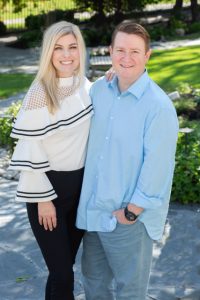


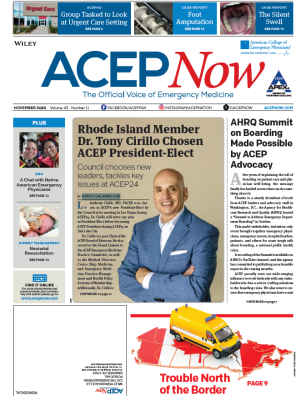
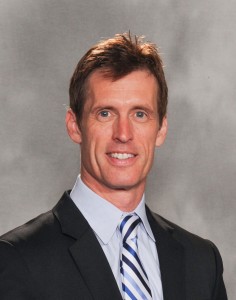
2 Responses to “Dr. Geesbreght: Leader and Caregiver for His Family, Community, and EM”
May 26, 2019
Stan SchoolerJust wanted to send a note to Dr Geesbreght for motivating me to pursue a career in Emergency Medicine. I was a pediatrician in the Air Force in Fort Worth and he gave me some great advice and was instrumental in my changing from peds to ER. He was a skilled ER physician but a compassionate listener. I practiced 33 years in Indiana and am retiring this month also. Wishing him all the best in his future retirement.
Sincerely,
Stan Schooler
February 24, 2021
dolores alcalaI want to give my condolence to Mrs. Priscilla Geesbreght for her loss and also give my regards to her beautiful mother Sylvia Thompson. My name is Dolores Alcala the lady who purchased your parents home (Putnam Street).
I want to take the time to thank your parents for letting me purchase their lovely home. ☺
regards,
Dolores